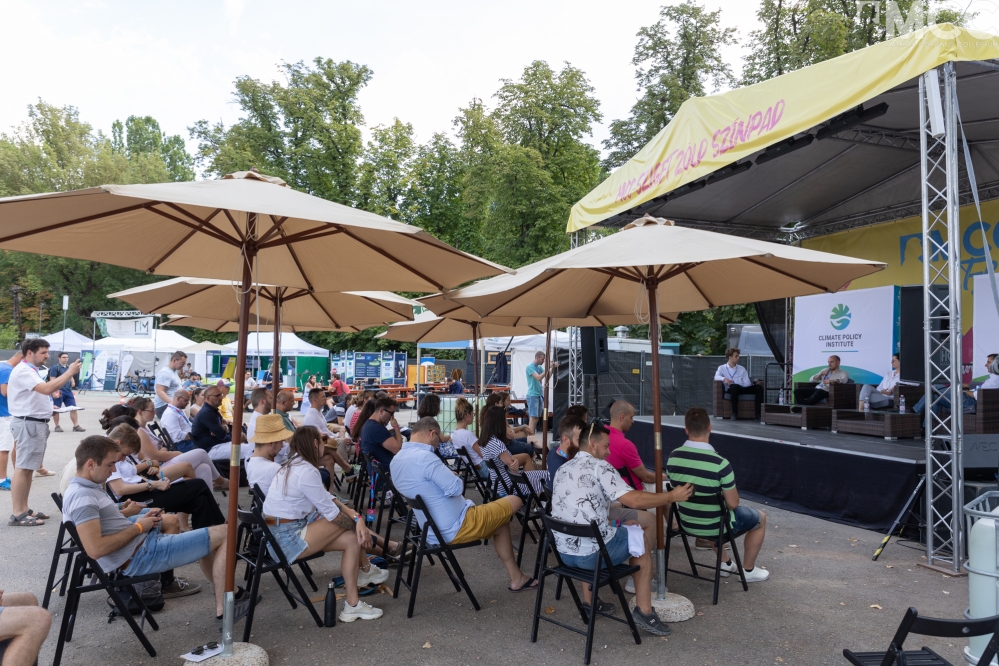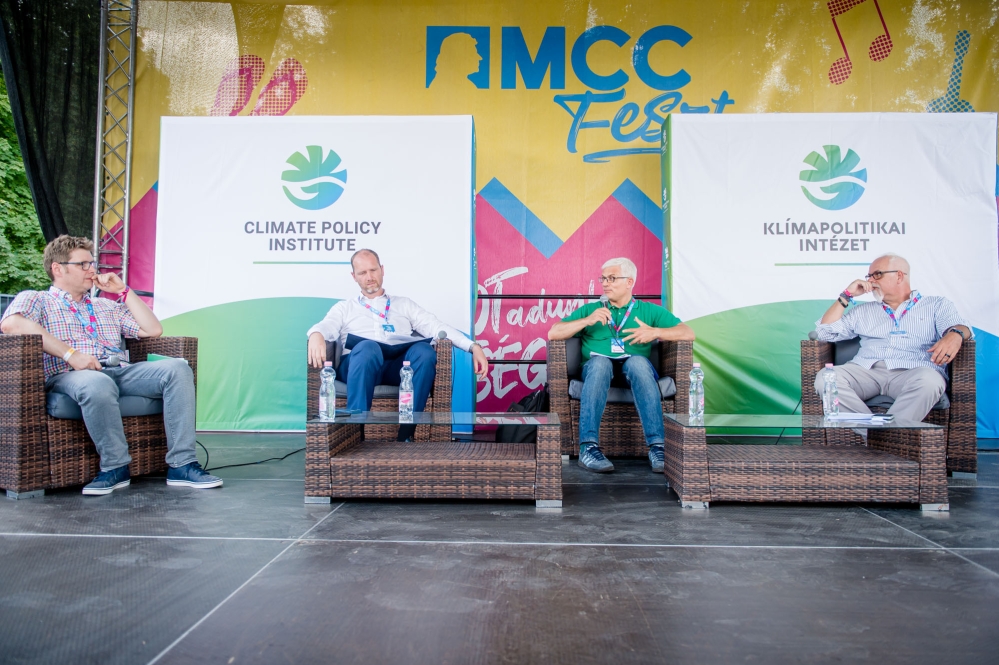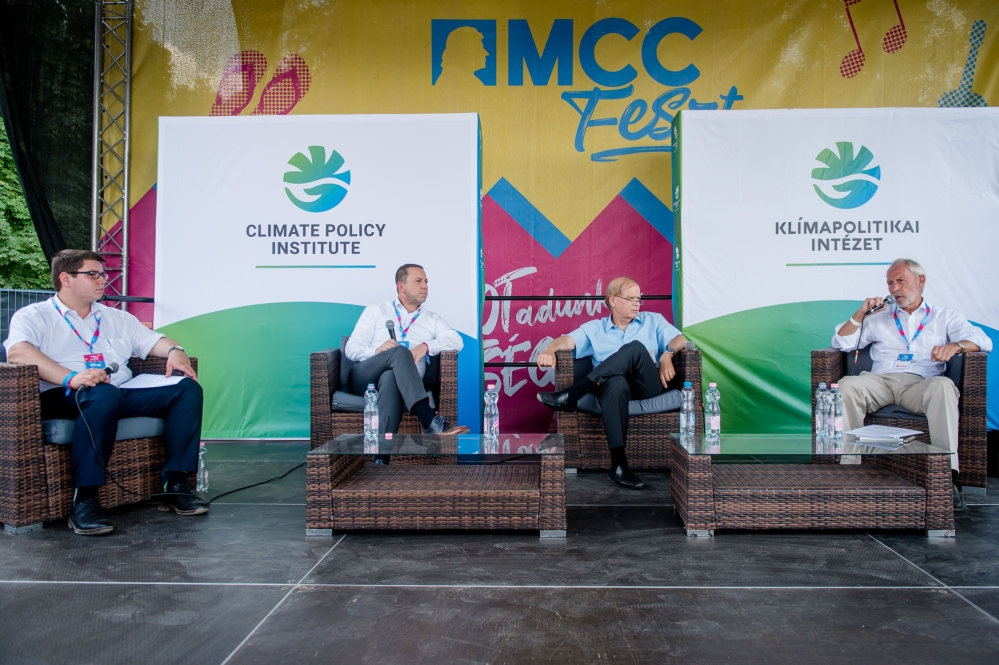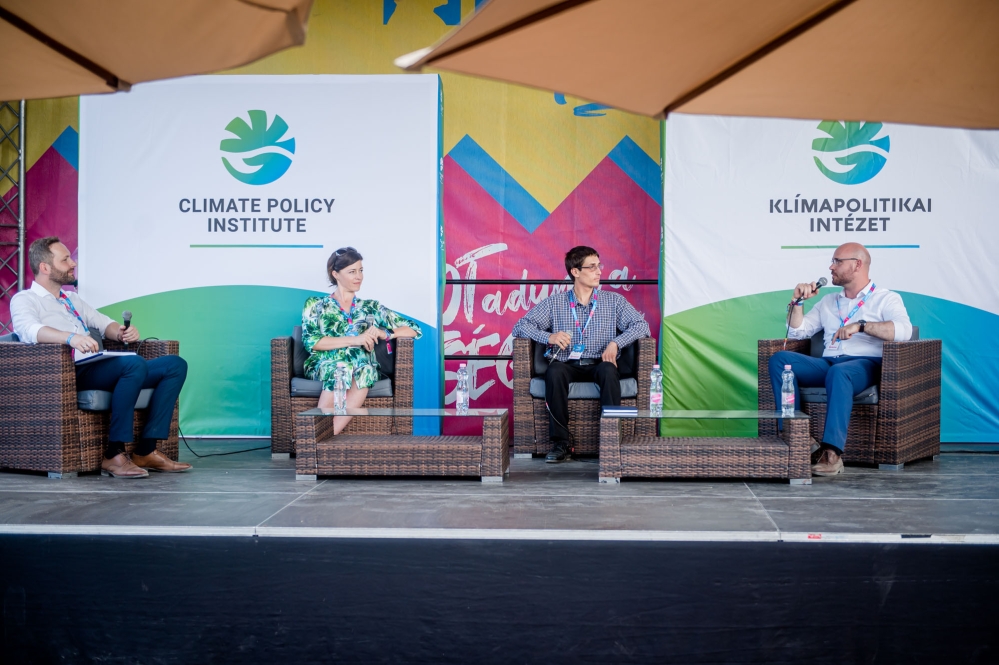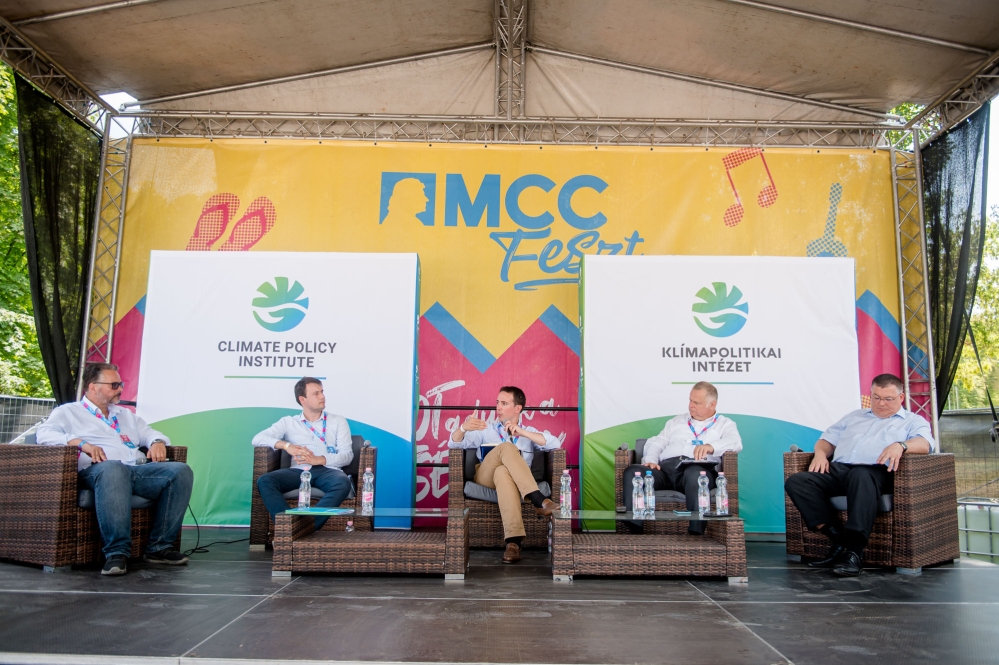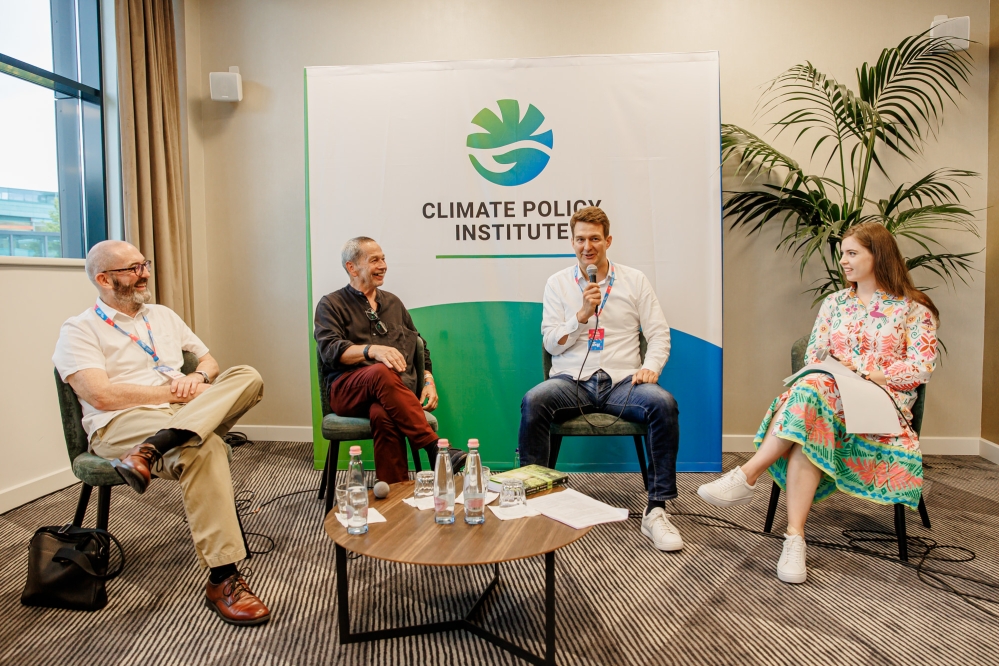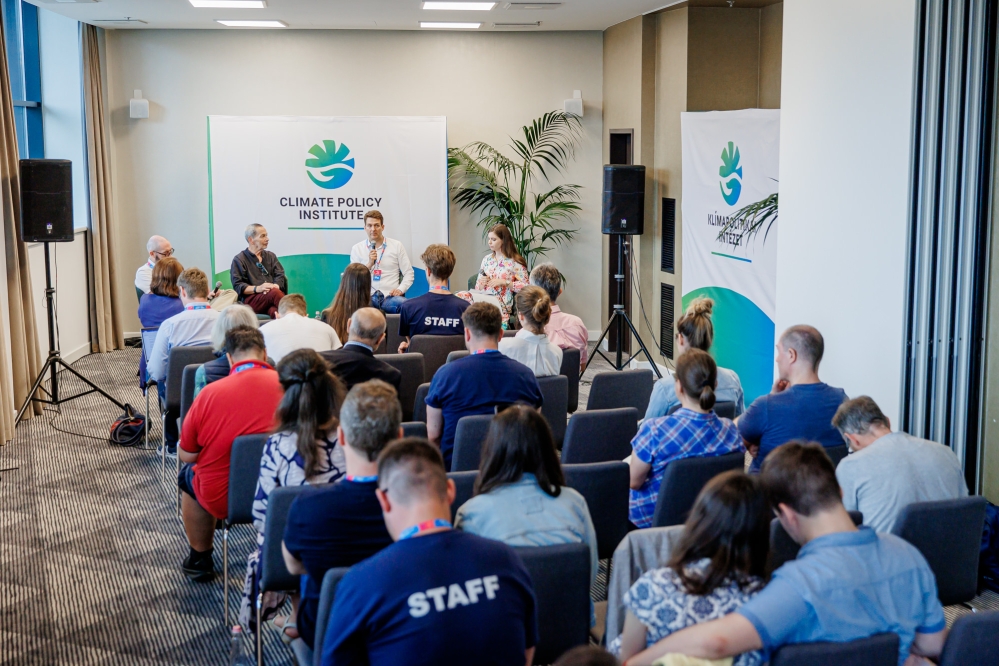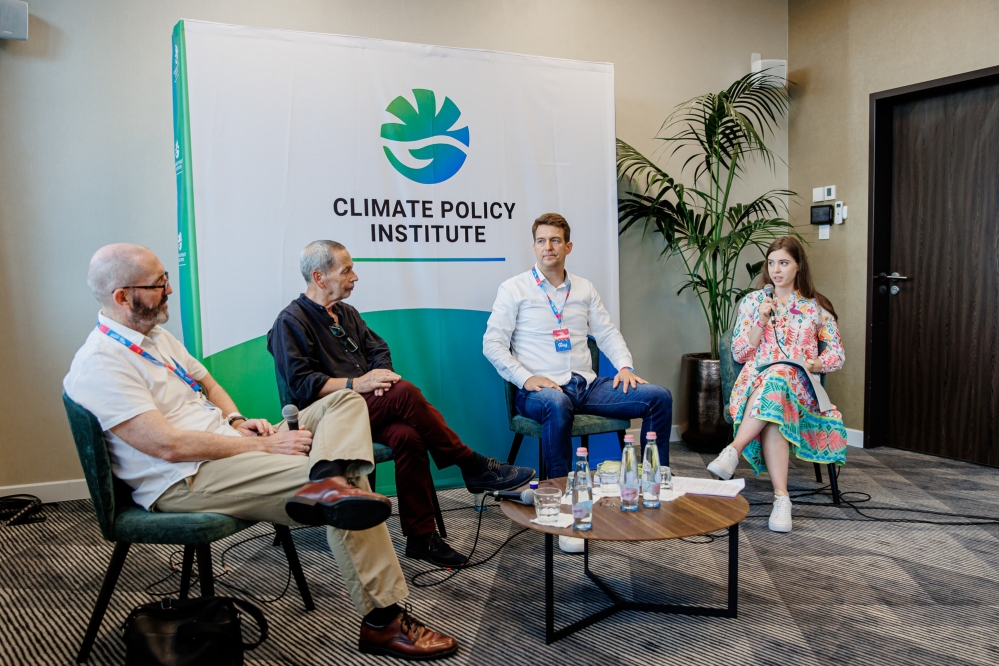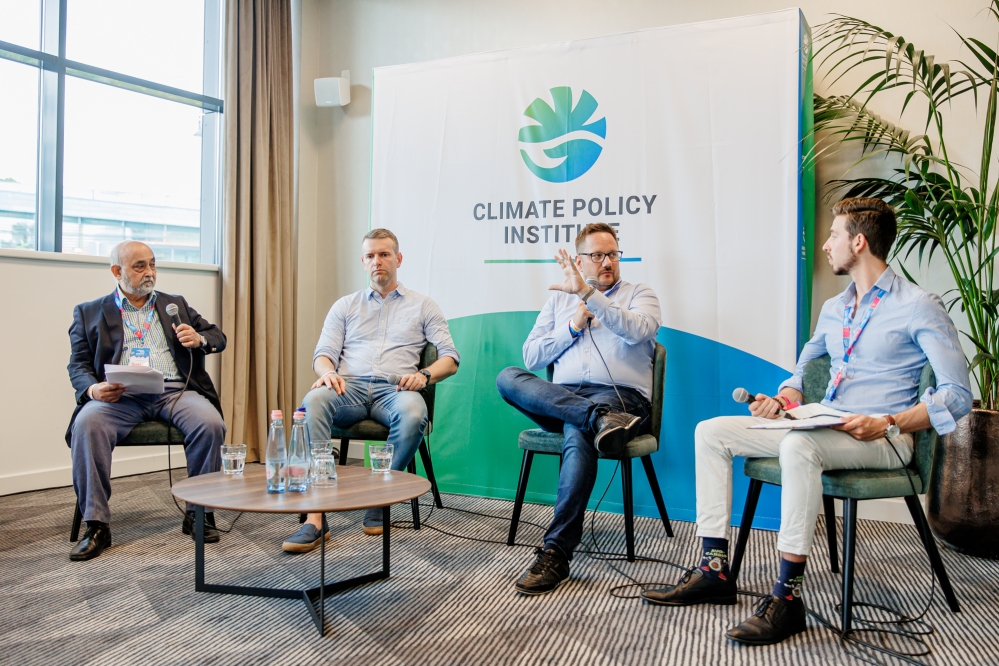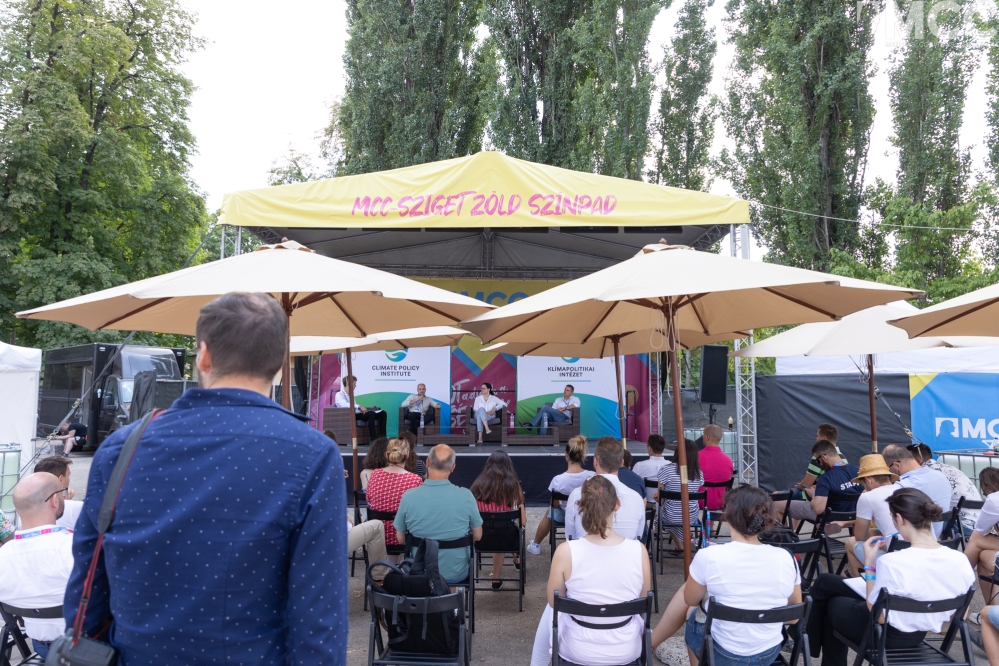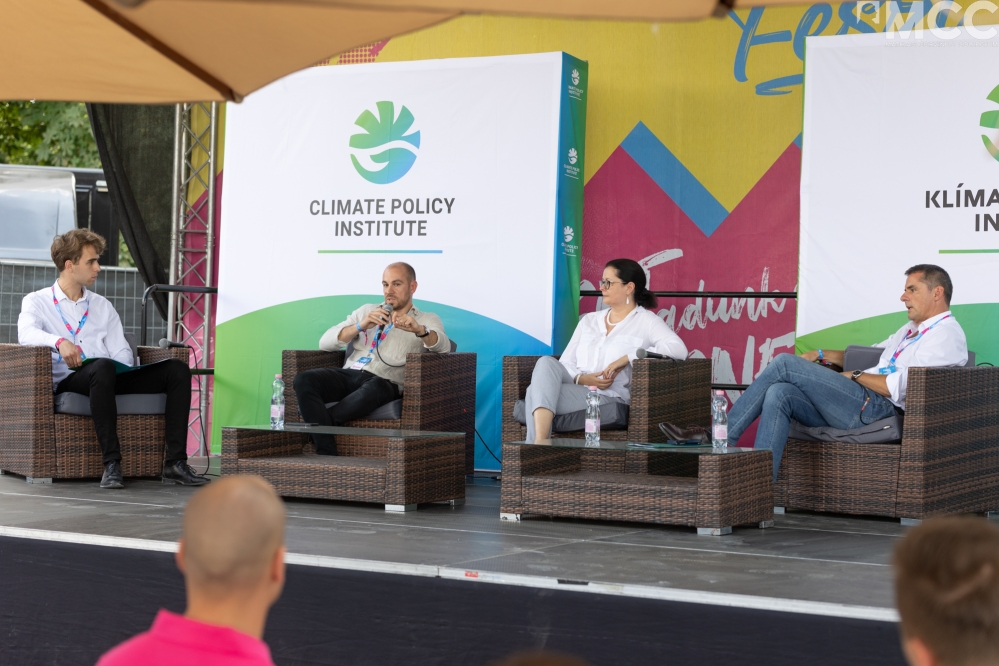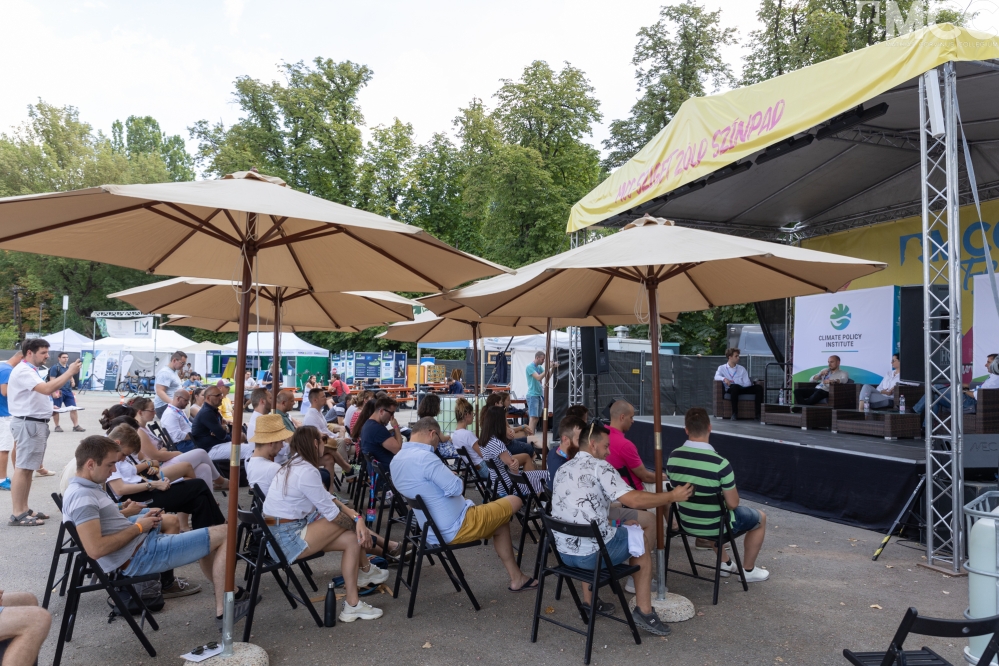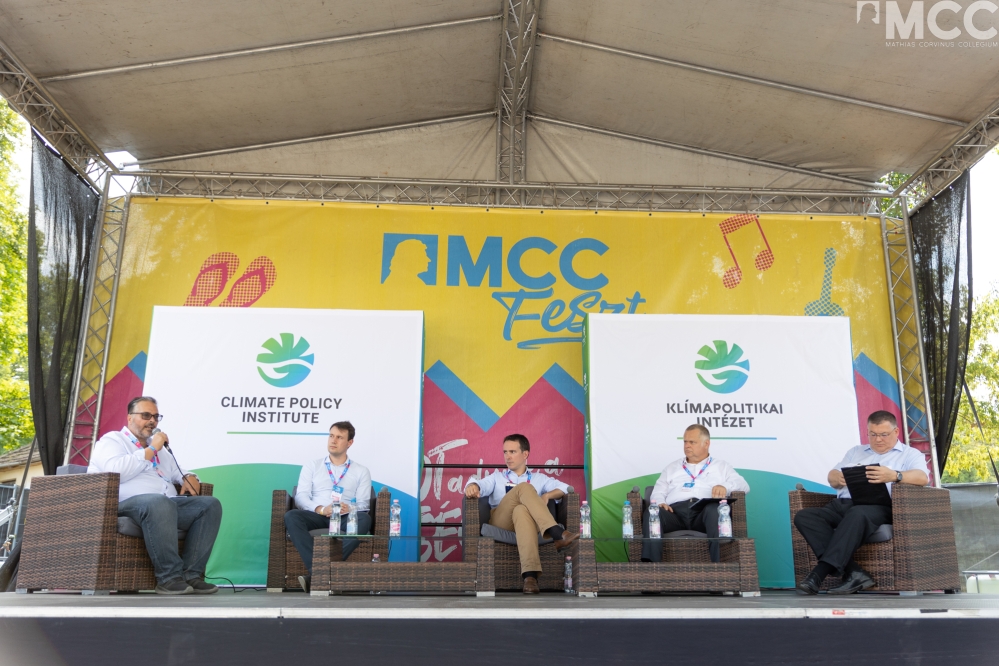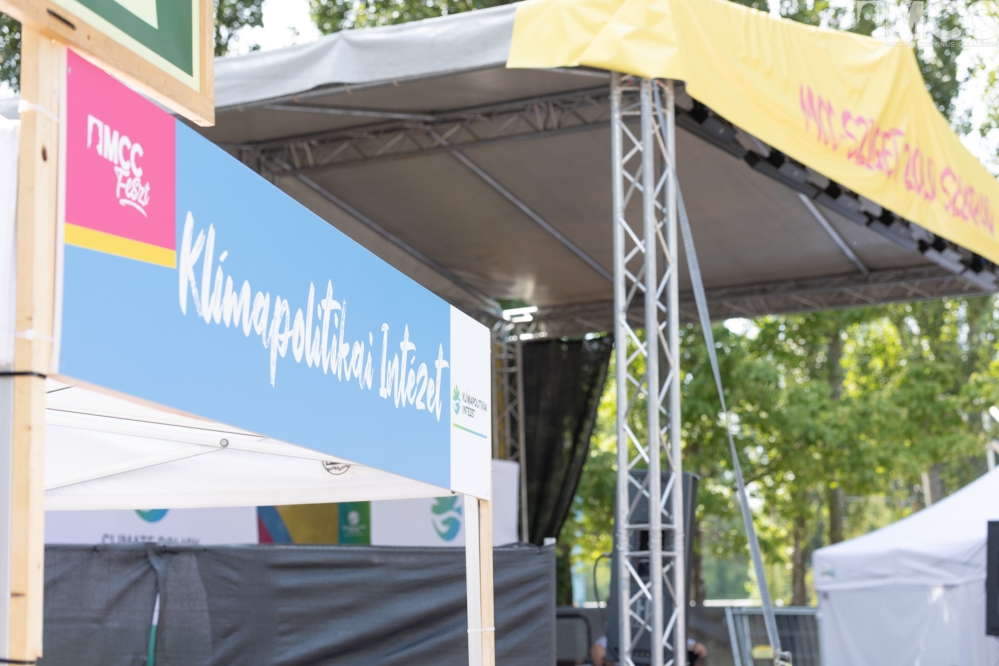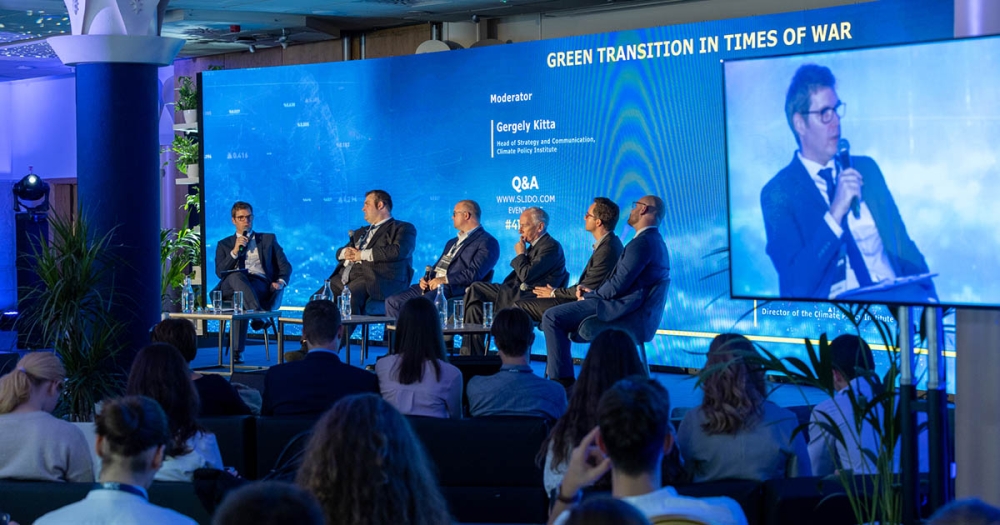The MCC Feszt of 2022 has paid more attention to sustainability than ever before, therefore the Climate Policy Institute organized a professional conference on environmental sustainability, which took place on the MCC - Island Green Stage between 29-30 July.
The MCC Feszt of 2022 has paid more attention to sustainability than ever before, therefore the Climate Policy Institute organized a professional conference on environmental sustainability. The event took place on the MCC - Island Green Stage between 29-30 July. During the exciting discussion, the impact of climate change on all areas of agriculture was also addressed. 2022 is a critical year in this respect, with 53% of the country's agricultural land currently affected by drought, causing partial or total crop failure. Hungarian agriculture has not yet recovered from the shock caused by the damage to supply chains during the COVID epidemic. Agriculture is comparable in size and value to industrial production, and its importance is growing, as less land is available to produce food for more people in extreme climatic conditions. To mitigate the negative impact of climate change, attention must be paid to remediation, prevention, and adaptation. As for adaptation, it was pointed out that Hungary's climate today is very similar to that of Bulgaria in the 1950s. This means that it is not the end of the world, we have to reshape our view of the future possibilities and limitations of Hungarian agriculture through breeding, clonal selection, the development of our capabilities such as water management, agricultural innovation and changing our mindset.
After agriculture, the issue of energy production, including nuclear energy, was addressed by renowned international and national experts who shared their views on this energy source. Participants of the discussion included Pál Kovács, former State Secretary for the Paks II project; István Lőrinc Szabó, Director of International and Nuclear Affairs at the University of Dunaújváros; Michel Berthelemy, OECD Senior Nuclear Expert, Kevin Oswald, Senior Energy Expert at Konrad-Adenauer-Stiftung. The discussion clearly showed that there is a need for nuclear energy, without which neither carbon neutrality targets nor increasing security of supply requirements can be met, especially in view of the energy crisis caused by the Russian-Ukrainian war, which could lead to a nuclear renaissance. Experts agreed that more and more countries are planning to build nuclear power plants, still, in Europe, there is a debate about nuclear installations. This debate is not technical but political in nature and is mainly fueled by Green parties.
The guests of the Green Finance panel were Radován Jelasity, President of the Banking Association and CEO of Erste Bank; Csaba Kandrács, Vice President of the Hungarian National Bank; and Gergely Horváth, Partner in the Budapest office of Dentons, an international legal advisory firm. The experts agree that epidemics, war, inflation crisis, serious supply security risks, and the (fear of) recession have a major impact on the green transition and, within that, on our finances for environmental sustainability. They talked about how difficult it is for investors to decide what is worth investing in when the world changes so fast, and even engineers are unsure which of the competing green technologies will be the best bet. The ESG market was also discussed. On the one hand, money is flowing into ESG funds. There is no other investment category that has seen such growth globally. On the other hand, the regulation of ESG, its transparency and the measurability of its impact leave much to be desired. It is recognized by major ESG advocates that some companies are trying to greenwash themselves through ESG programs. The framework for ESG reporting obligations is being put together in the EU, with directives under development. While more than $1 trillion has flowed into green investment securities over the last 2-3 years, greenhouse gas emissions have increased, not decreased, and investors have not made a huge profit on these securities. Nevertheless, there was a clear consensus among the participants that the current crisis, like all crises, will pass, and, in the long run, it is worth investing confidence and capital in the green transition.
Invitees of the panel on the relationship between international cooperation and climate change included Rajmund Kiss, former Ambassador and Head of the MCC Center for Diplomatic Studies; Yacov Hadas-Handelsman, Ambassador of Israel to Hungary; and Frank Spengler, Advisor to the Hungarian-German Institute. Among other things, it was discussed that when one reaches his or her limits at the individual level, allies with others and sets higher goals, goals that are unthinkable without the conclusion of large cooperative agreements, hence the significance of international organizations. Another point of view is that international cooperation is ineffective because it is hampered by divergent interests and lacks coercive power, so strong nation-states are a competitive alternative to international organizations. A strong state can bring corporate, cultural, and social actors together on a common platform.
The closing event of the Green Stage and that of the Climate Policy Institute's program was a discussion on the role of green NGOs between Levente Pribéli, founding member of Friday For Future; Gabriella Sódar, business development manager of the Kék Bolygó Alapítvány (Blue Planet Foundation); and Máté Litkei, director of the Climate Policy Institute
The MCC - Green Stage continued 30 July with expert panels organized by the Migration Research Institute.
In the discussion on the third day of MCC Feszt, François Gemenne, expert of the UN Intergovernmental Panel on Climate Change (IPCC) and Director of the Hugo Observatory at the University of Liege, Calum T. M. Nicholson, an instructor at the University of Cambridge; Ilan Kelman, Professor at University College London; and Viktor Marsai, Director of the Migration Research Institute.
The experts agreed that migration is not an invention of the modern age, the phenomenon of migration is ancient to mankind, there are very few ethnic groups in the world that have not changed their place of residence in the course of their history, and such population movements can also be found of the prehistory of the Hungarians.
The speakers were not in full agreement regarding the impact of climate change on migration. Some argued that it is fashionable to blame migration on climate change, although it can have many economic, political, or cultural-religious causes, or even be caused by wars; others argued that there are very well documented cases of climate change-induced migration, and it would be pointless to deny this.
In fact, the question is not even whether there is a link between migration and climate change, but rather what can be gained or lost with it. The issues of adaptation and prevention came up several times during the discussion. The latter, i.e. understanding the causes of migration and developing the capacity to prepare for it is always cheaper and easier in the long run than dealing with the problem once it has arisen. In other words, understanding the causes of migration and building the capacity to be prepared for it is always cheaper and easier in the long run than dealing with the problem once it has arisen
Of course, consciously influencing migration at the policy level is made more difficult by the fact that in some parts of the world, climate change is not being addressed properly. In Africa, a large part of the population considers the various natural disasters not as a harmful consequence of human activity, but as divine intervention, beyond the reach of government policy or science.
The program, organized in cooperation with the Migration Research Institute, continued with a panel discussion exploring the links between terrorism, radicalism, and environmental protection, where Diego Muro, Professor at the University of St Andrews, Scotland, and Krisztián Répási, Professor at the National University of Public Service, shared their thoughts with the audience. The conference then continued with a look at the social aspects of climate change. Philip Hammond, Professor at the London South Bank University; Frank Füredi, Professor at the University of Kent and László György, Secretary of State for Innovation and Higher Education, shared their valuable insights on the cultural, communication and media dynamics of environmental protection. They agreed that in today's secularized world, Europe, with its Christian-Jewish roots, is looking for new religious substitutes, and is trying to fill the gap in the morality of the Western world with the issues of environment and climate protection. The problem with climate protection is that the role of science in finding solutions is gradually being diminished and is increasingly being replaced by communication and politics. This arises from the blurring of traditional ideological differences after the Cold War, and the environmental issue was seen as one through which a large mass of voters and consumers could be reached and influenced.
The closing event of the two-day conference focused on the energy crisis, with Attila Steiner, State Secretary of the Ministry of Technology and Industry; György Bacsa, Managing Director of MOL Group; and Anil Markandya, Professor at the Basque Centre for Climate Change, discussing the most critical issue facing Europe. The invited speakers spoke about public, national and state measures to tackle inflation and record high energy prices and their sustainability, their impact on consumption, GDP and monetary depreciation.
It was said that public assistance is important to alleviate social tensions, but that these measures can only be temporary, as the costs of the fuel price cap, for example, reduce the amount of resources allocated to other important areas. Among other things, it was also highlighted that the current crisis situation has proven that for Hungary, the separation from natural gas is inevitable; we must strive to ensure that electricity plays a major role in the energy mix, as Hungary can produce this type of energy due to the existing and future nuclear power plants.
An interesting remark was that the 15 percent reduction in gas consumption required by the European Union is equivalent to about the same amount of energy in Europe's supply as the energy generated by the three German nuclear power plants closed at the end of the year. The experts agreed that there is no rational justification for the reduction of nuclear power generation capacity in the current crisis. Geopolitically, Europe is in a vulnerable position. The vast majority of raw materials are located in the US and China and their spheres of influence, so for Europe, with its colonial past, innovation is the only way to preserve its position as a great power.

